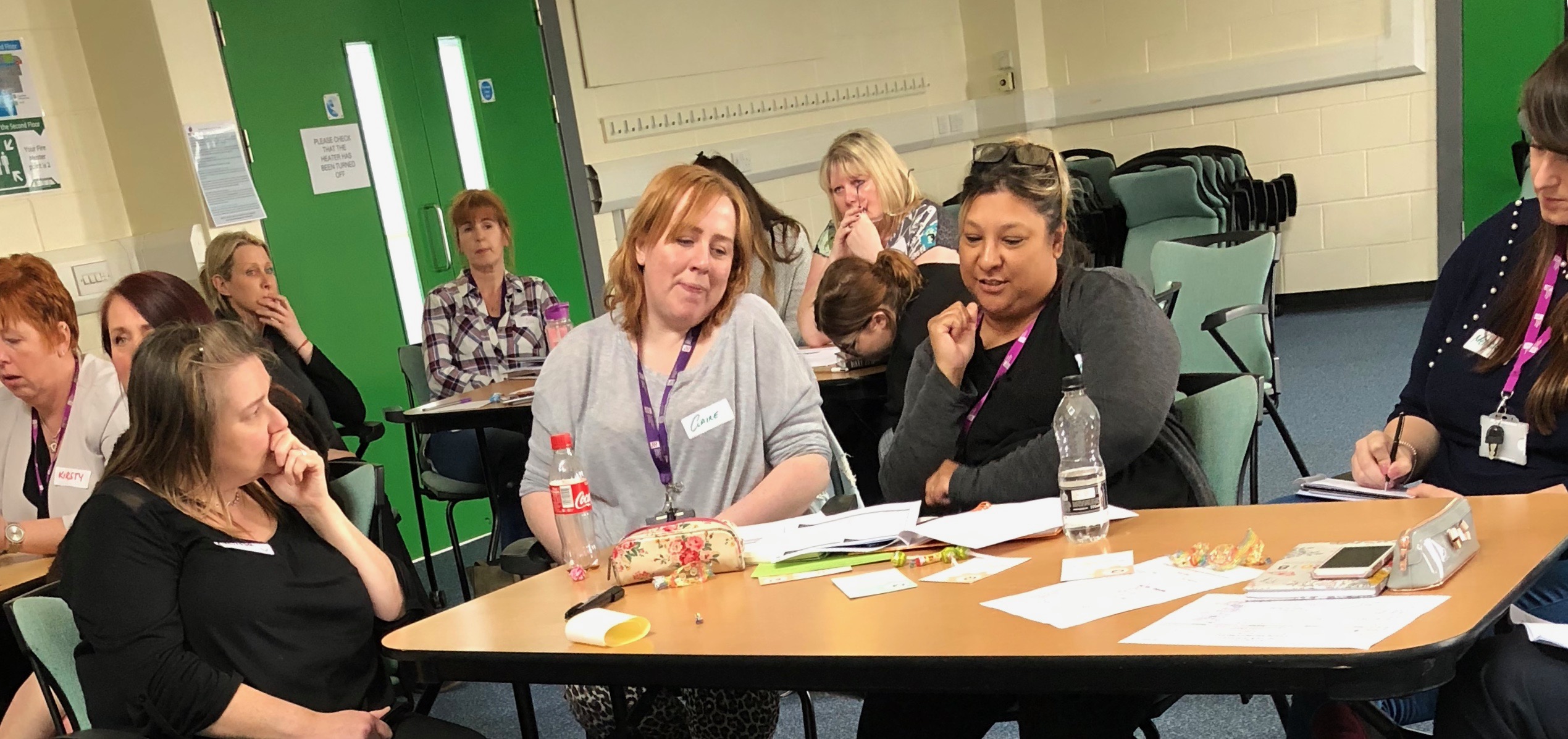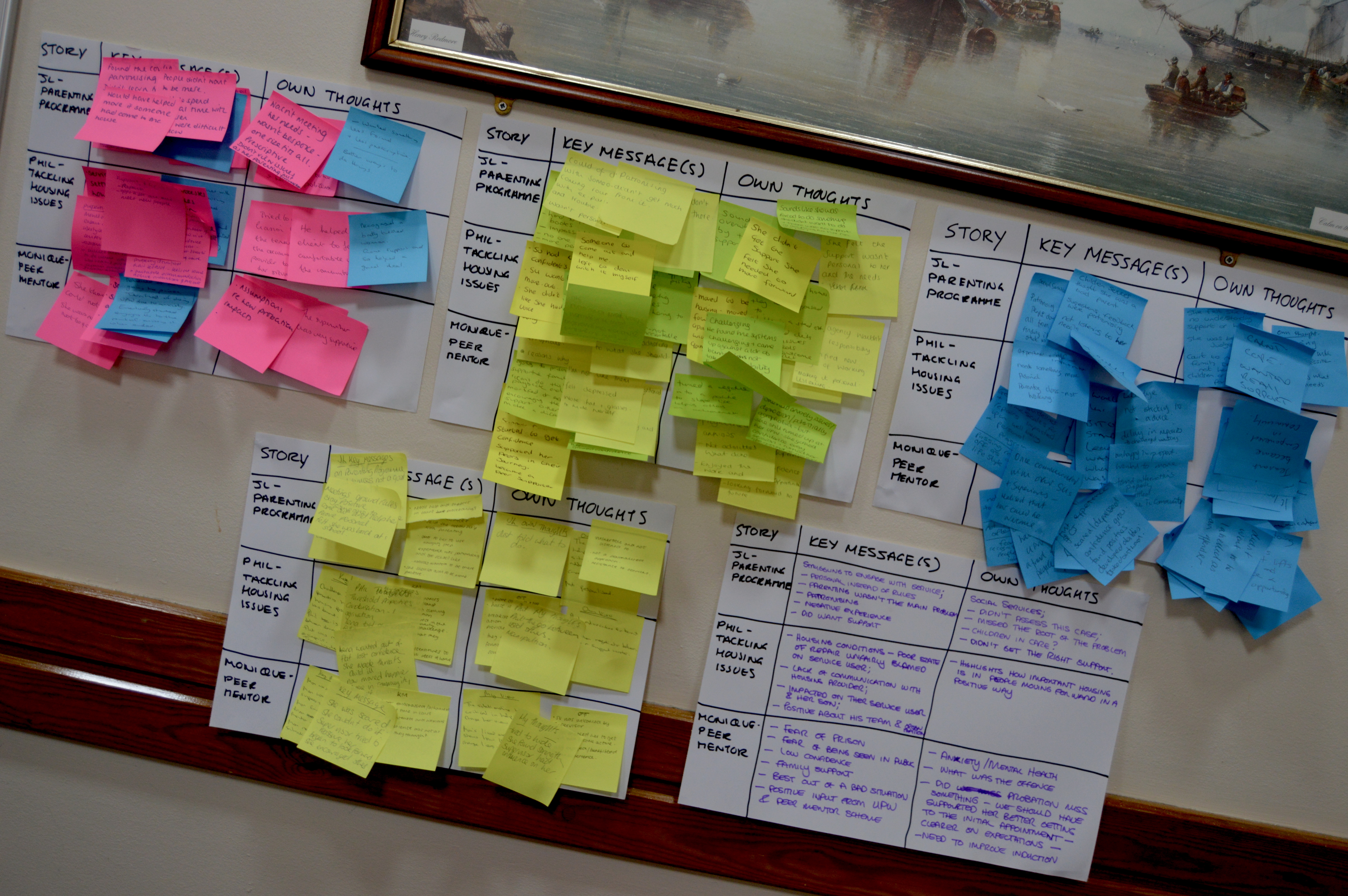My Direction: Services for Low and Medium Risk Offenders
The ambition of My Direction is to extend co-creation to the rehabilitation of offenders, a group of service users who are by definition non-voluntary because they are mandated by the courts. This pilot was informed by theory from criminology called ‘desistance’, which aligns closely with co-creation by recognizing the importance of offenders’ agency, assets, and relationships. My Direction aimed to help people on probation to become more active participants in their own rehabilitation. It took as a starting point some promising ideas from an earlier, small-scale ‘proof of concept’ pilot on person-centred practice within the probation service. Exposure to My Direction means service users receive a more personalised service experience.
Schedule:
The active pilot phase was for 12 month period from May 2018, followed by monitoring and evaluation.
Geographic area and target groups:
The location is Humberside, Lincolnshire and East Riding, in the north of England. Participants (service users) have committed crimes and are subject to non-custodial sentences, or been released from prison under license.

Photo by Caroline MarshPilot actions:
My Direction required case managers to work with service users throughout the duration of their order to co-produce a support plan and undertake actions that allow them to meet their individual and holistic needs. More than 80 service users were enrolled and 60 remained engaged. Probation staff took part in training on person-centred practice, supported by Action Learning Sets.
Community Reporting was embraced as an effective means of using ICT-based data to facilitate co-creation in this pilot. The Community Reporting programme aimed to support a culture shift within the wider organisation in terms of creating better understanding between staff and service users’ perspectives, and front-line workers and management. At a ‘conversations for change’ event in Hull senior probation staff along with front-line workers and volunteers (ex-service users) listened to a montage of extracts from staff and service user stories and reflected on the need for change.
An ‘enabling fund’meant that service users could request small sums of money (typically between £40 and £100) to support their own rehabilitation goals in ways that lie outside the scope of available services. The idea was adapted from practice in social care where forms of cash in lieu of services (direct payments, personal budgets) have become well-established means of personalisation in England. As a mechanism for moving from passive to active user interactions, the enabling fund was boldly innovative in the probation context.

Results:
Reflecting back on the experience of practitioner training, case managers reported that they were particularly pleased about simple, paper-based tools to identify the things that are important to service users (for example, contrast what happens on a good day with a bad day). Practitioners used the tools to lead into conversations that induced service users to start thinking of solutions for themselves.
Examples of ways service users spent money from the enabling fund included gym membership, and purchases such as smart clothing and a bike for travel to work. The enabling fund proved uncomfortable for some case managers who were fearful of misuse. Although less utilized than originally hoped, some case managers and service users alike suggested that the enabling fund signified an incentive to engage, and to enhance motivation towards desistance from crime.
A co-created output from the Conversations for Change event is Personalisation in Probation: guidance on creating a culture of personalisation. An example of important learning from Community Reporting was the great importance of volunteers with lived experience of the criminal justice system as intermediaries for co-creation. This role potentially represents some redrawing of the boundaries between ‘professional’ and ‘user’ in ways that go to the very heart of co-creation.
Learn more form lived experience stories gathered in the British CoSIE pilot
Read more from the An Institute of Community Reporters Publication:
Personalisation in Probation Services
Read more from our CoSIE Blog
Co-creating a Rehabilitation-ready Criminal Justice System
CoSIE partners involved:
Interserve Investments Limited
Manchester Metropolitan University
Contact:
Sue Baines, s.baines@mmu.ac.uk
